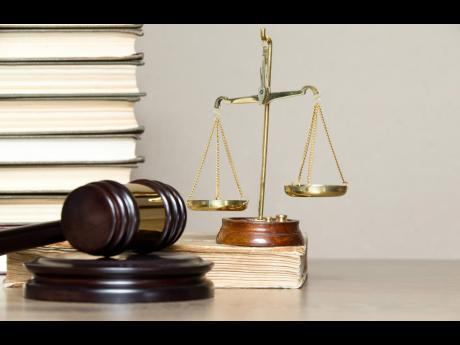Vishnu Bisram | Misunderstanding CCJ’s jurisdiction over Guyana Courts
Reference is made to the article by Mr Imran Khan, public relations officer of the government of Guyana, wherein he sought to influence the ruling of the Caribbean Court of Justice (CCJ) in a matter currently before the court with a judgment due by Wednesday afternoon.
A full-page advertisement of similar import was published in the Trinidad Guardian on Sunday. A similar argument was made by agents and lawyers of the Guyana government in Caribbean press and in social media. Such attempts seek to subvert due process and the independence of the court. It is the executive arm of the State attacking the judiciary in what is supposed to be separation of powers. These missives and ads must be condemned and not entertained by the public or by any officer of any court.
In addition to seeking to influence the judgement of the court, which violates the basic rule of impartial justice, the missive violates a foundation stone of the judicial process called the sub judice principle. Any matter before the court cannot be commented upon by the parties of the dispute or their agents. The State should not seek to influence the court.
In addition to the above, Khan’s missive simply misreads and misunderstands the jurisdiction of the CCJ (the apex court) over the Court of Appeal (CoA), a superior court of Guyana. The CCJ is the apex court and has jurisdiction over the Court of Appeal of Guyana on all matters, except where so specifically stated.
Khan quoted a clause in the law pertaining to the ascension of the CCJ as Guyana’s final court. That law was passed in 2004. The clause was/is specific. It states that all matters already litigated by the CoA were final and could not be appealed to the CCJ. The law was very literal in its meaning. All matters brought to and decided by the CoA post April 2005 could be appealed at the CCJ. That was the simple and ordinary meaning of the law when it was enacted in 2004, as related by members of parliament who are still around. So, clearly, the CCJ would have jurisdiction over appeals decided by the CoA, as per law.
JURISDICTIONal ISSUE
In addition to the jurisdictional issue before the CCJ, there is also the issue of whether the CoA itself had jurisdiction to hear an election matter. Khan’s government petitioned the CoA on the March 2 election matter, to determine the meaning of the term ‘votes’. The opposition contended that the CoA had no such jurisdiction. The law states that the CoA only has jurisdiction to determine if a candidate meets the qualification to run for president. The opposition claims that any election matter must be addressed by the High Court in an election petition and not the CoA. The opposition also argued that a petition or challenge to the eligibility of a candidate to serve as president can only be filed after a declaration of he result. The elections commission is yet to make a declaration and an official winner is not announced.
The CoA made a ruling that it had jurisdiction to define what is meant by votes, adding the term ‘valid’ in front of it. The government sought a number of orders from the CoA, but none were granted.
The ruling was appealed by the opposition to the CCJ. There is a legal principle that, even if the ruling of a superior court is final, if it violates jurisdictional issues, the apex court (CCJ) can overturn it. Also, if a superior court rules beyond its remit, the apex court can review its ruling.
In addition to the above, the CCJ has original jurisdiction on some matters. The fundamental rights of Guyanese voters are violated. An attempt is being made at electoral fraud to disenfranchise 115,844 voters. This is a fundamental issue of natural rights pertaining to democracy. That in itself gives an apex court the right to revisit the ruling of a lower or superior court. The Privy Council and supreme courts of the US, India, Canada, UK, Australia, South Africa, etc, have all assumed jurisdiction over the rulings of superior courts on electoral matters or basic rights.
So, clearly, the CCJ, which is the apex court of Guyana, has jurisdiction over the ruling of the CoA. It is my humble interpretation of the laws of Guyana and from the questioning line of the CCJ judges of oral presentations a week ago that the court would assume jurisdiction (with a Marbury V Madison principle) and set aside the CoA ruling. Such a ruling would empower the CCJ with judicial review of regional members.
Vishnu Bisram is a political analyst. Email feedback to columns@gleanerjm.com

